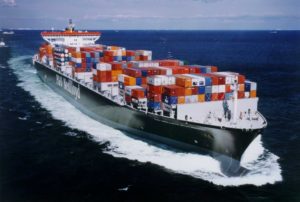Managing Supply Chain Risks and Opportunities
Photo Credit: Pinterest
Around the world, legislators and consumers alike are paying greater attention to supply chains these days. The Rana Plaza factory collapse in Bangladesh, alleged use of child labor by Samsung suppliers, or numerous eye-popping fines for foreign bribery involving companies in various industries (GSK, Alstom, or Telia to name just a few) drive home an important point. While global supply chains provide unprecedented opportunities for business growth, they are also a large source of compliance risks.
At a recent event on supply chain risks and rewards in emerging markets, organized by Baker McKenzie in Washington, DC, speakers highlighted the need for greater integration between the various aspects of legal, regulatory, and ethical business compliance. The regulators’ focus on corruption has been well established through enforcement of the U.S. Foreign Corrupt Practices Act (FCPA) and similar laws. Bribery is now only one such area requiring renewed focus.
There is a growing trend of legislation such as California’s 2012 Transparency in Supply Chains Act centered on reporting and disclosure of forced labor and human trafficking prevention by companies. Similarly, U.S. government contractors sourcing from abroad must disclose their risk assessments as well as relevant policies and procedures. In 2015, the UK similarly passed its Modern Slavery Act. Enforcement, while not very vigorous to date, is likely to follow given that the underlying criminal statutes on forced labor and exploitation are in place. Environmental considerations are becoming more significant as well given the proliferation of international standards and public outrage over abuses linked to industries such as extractives or palm oil.
Other risk areas prominently linked to supply chains involve product safety, data privacy, and tax compliance. The Baker McKenzie event took a comprehensive overview of this complex regulatory landscape, paying special attention to risk exposure generated by third parties in global supply chains. Key compliance pitfall here is the misalignment of how these issues are handled within a company: they are relegated into department silos.
The way to overcome this fragmentation requires companies to conduct regular and robust risk assessments and due diligence of their business partners in emerging markets. Addressing risks is only possible if a company knows who it is doing business with and what the potential red flags may be. That in turn calls for local knowledge, comprehensive third party databases, strong supplier codes, contracts that include audit rights, and employee training. The final key component is a strong tone from the top, reinforced in the middle, where leaders and managers clearly and consistently communicate what kind of company they want to build.
Anna Kompanek is the Director of Global Programs at CIPE

